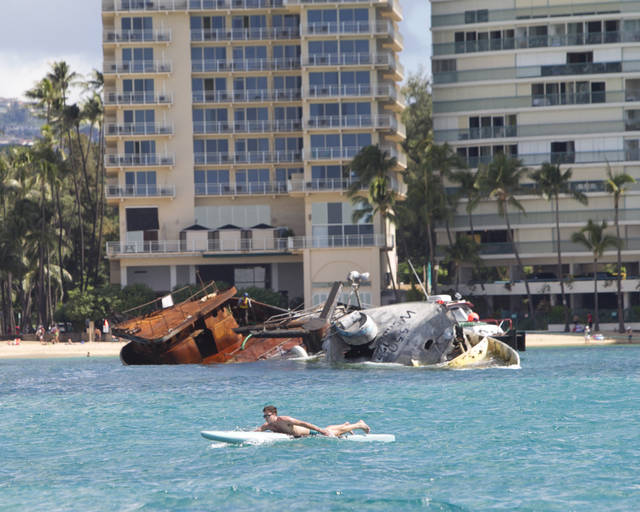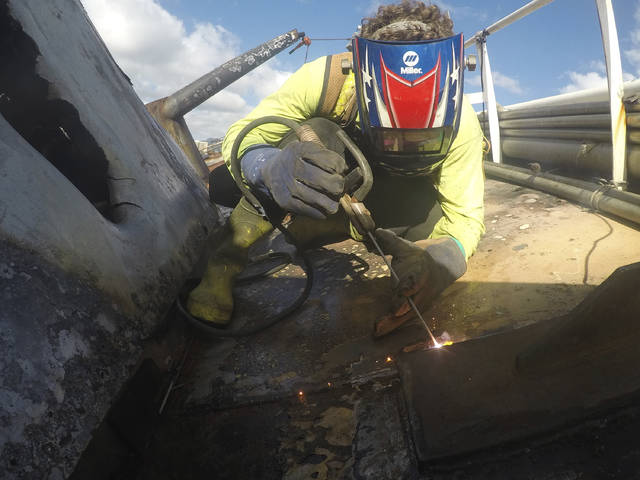Wrecked fishing boat off Waikiki prepped for removal

ASSOCIATED PRESS
A man on a surfboard swims past the Pacific Paradise fishing vessel off Waikiki on Nov. 13 in Honolulu.

ASSOCIATED PRESS
In this Nov. 17 photo provided by the U.S. Coast Guard, a responder welds on the deck of the Pacific Paradise that is to be refloated in Honolulu.


HONOLULU >> The fishing vessel that ran aground just off pristine Waikiki beaches more than a month ago is being prepared for removal, possibly by the end of the week.
Crews are working to seal holes in the 79-foot Pacific Paradise, remove sheets of metal to make it lighter, and weld supports to strengthen towing points.
A helicopter hoisted 16 sheets of metal from the boat Sunday in a bid to remove weight so it can be floated again.
“This is vital step in removing weight and recovering the necessary buoyancy to refloat the Pacific Paradise,” said Coast Guard Lt. Will Cotta of the Salvage Engineering Response Team in a statement.
The U.S. Coast Guard said water tests show no fuel or oil around the boat, but a visible sheen was seen earlier this month. Swimmers also reported smelling and feeling the fuel in the water.
Water tests were previously being conducted twice a week, but last week officials began testing the water daily in part because of concerns from the Waikiki Aquarium, which is near the crash site and pumps seawater into its tanks.
Don't miss out on what's happening!
Stay in touch with breaking news, as it happens, conveniently in your email inbox. It's FREE!
The boat crashed into the reef just before midnight on Oct. 10 with an American captain and 19 foreign workers onboard. No one aboard the vessel called for help when the boat ran aground. Witnesses called the Coast Guard who worked with local fire officials to rescue the men.
The vessel was not on a fishing trip when the crash happened. It was transporting foreign workers from Pacific island nations and Southeast Asia to work in the commercial fishing fleet based in Hawaii.
The workers do not have visas and cannot enter the United States, but a loophole in federal law allows them to work in the U.S. Pacific fleet.
The men are not covered by U.S. labor laws and a 2016 Associated Press investigation revealed many of the foreign workers are paid a fraction of what other U.S. fishing crews make. The men are confined to their boats for the duration of their contracts, often a year or two at a time.
Days after the wreck, the vessel caught fire as a salvage team was working on the deck. The fire caused extensive damage, slowed the removal of the vessel and allowed diesel fuel and other oils to enter the water.
Coast Guard officials hope the boat will be removed by the end of November. It will be towed out to sea and sunk at a site approved by the U.S. Environmental Protection Agency.



